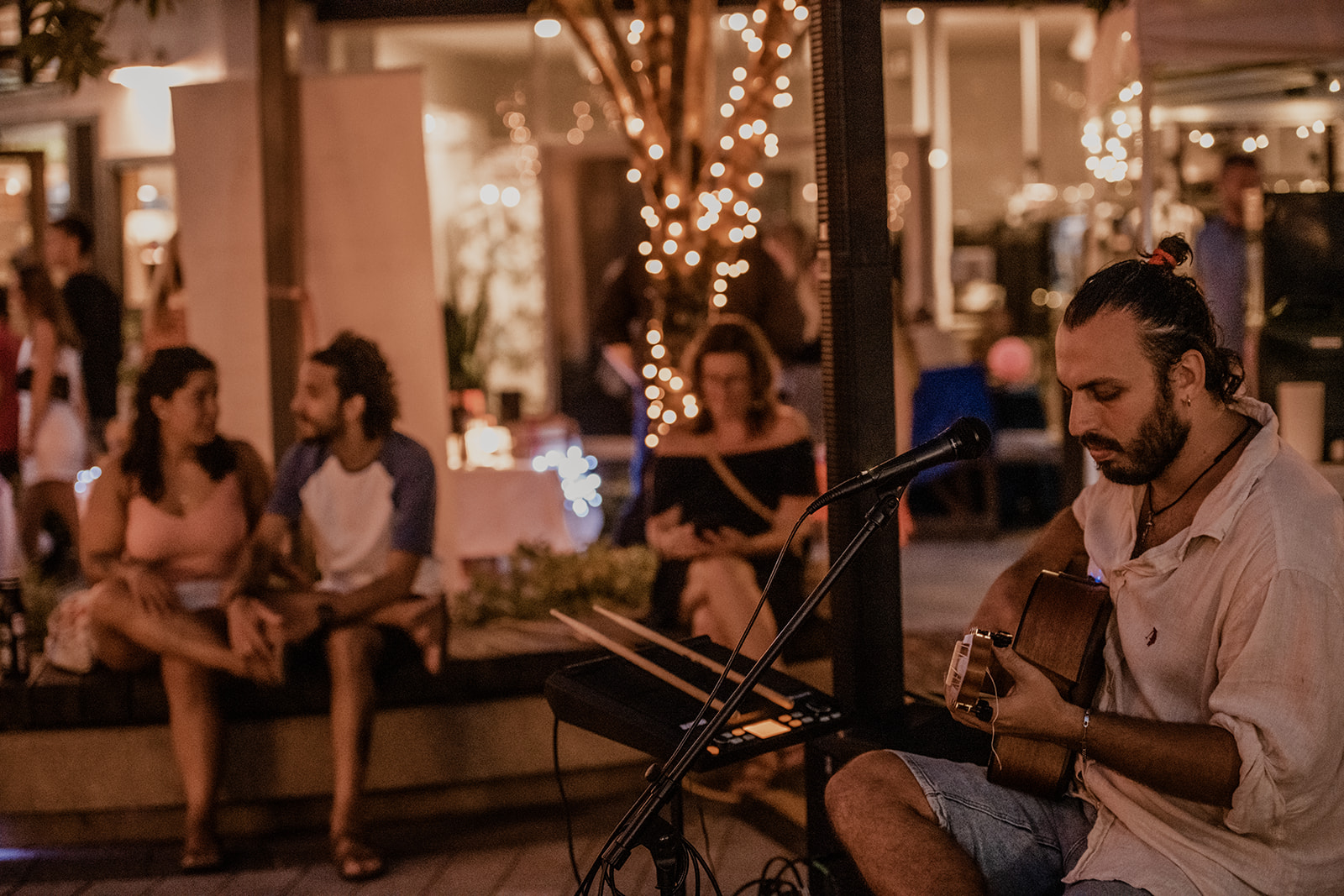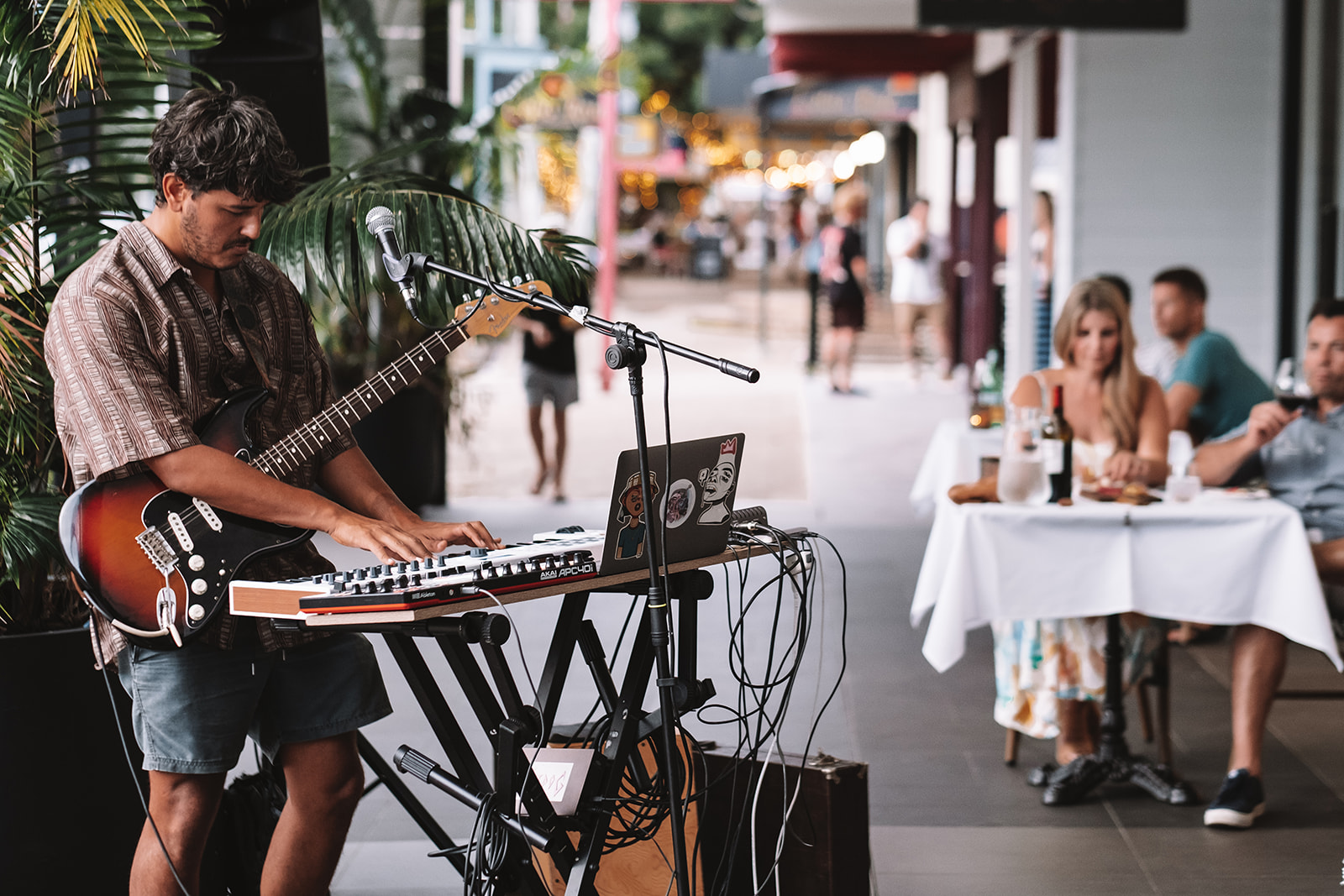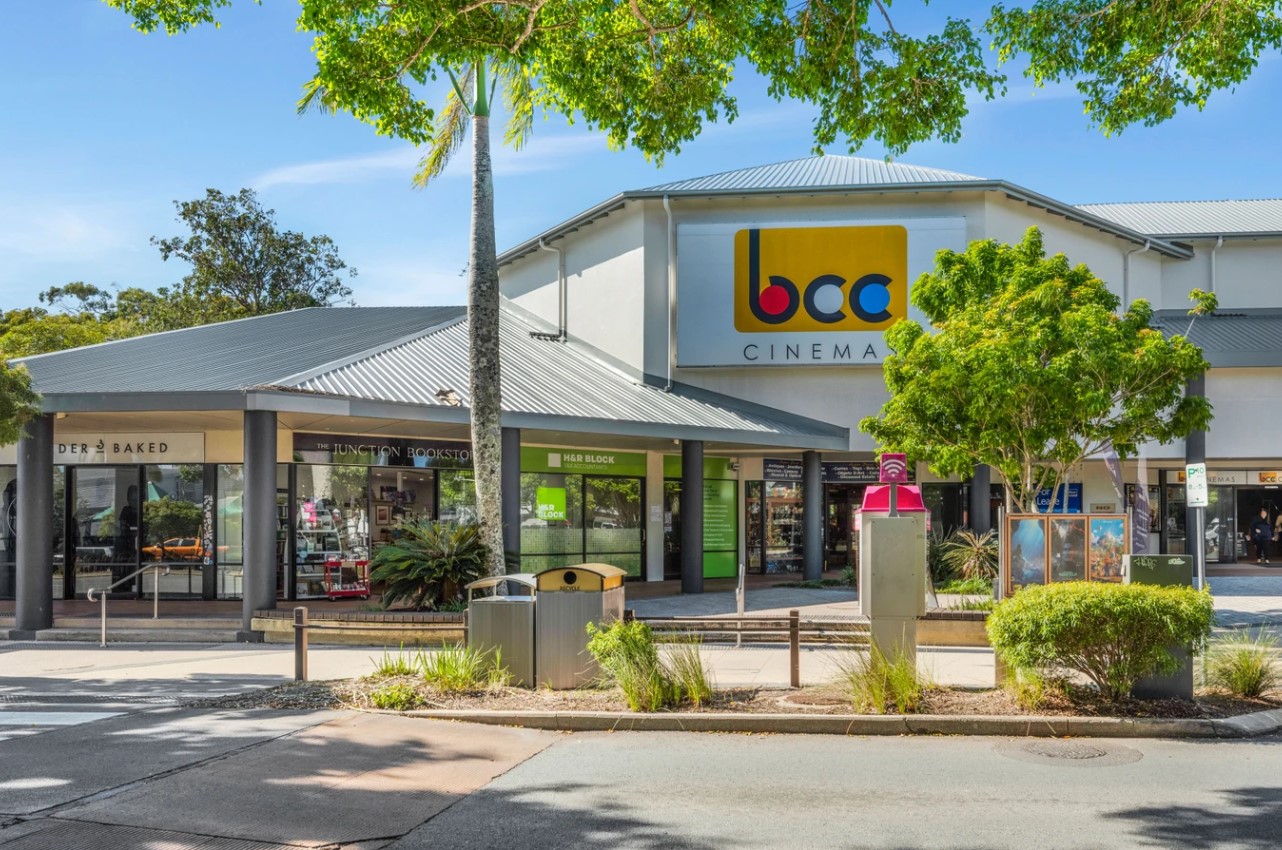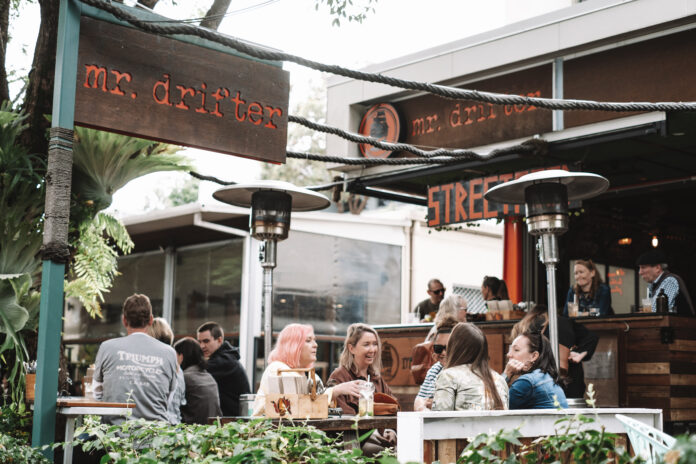A report has provided insight into potential options on striking a balance between residential amenity and the success of hospitality venues within a busy precinct.
Noosa Junction has become a thriving hub for local businesses and live music following the efforts of a local association to revive the former business centre.
The precinct’s emerging nightlife scene spurred backlash from nearby residents, who petitioned to limit operating hours and drew comparisons between Noosa Junction and the Gold Coast.
The petition referred to proposed amendments to the Noosa Plan 2020 that included permitting food and drink outlets within the Noosa Junction Hospitality Precinct to operate until midnight, seven days per week.
The Noosa Junction Association then launched a counter-petition in support of live music at venues.
The revised planning scheme amendments outlined that the extended hours would only apply for new food and drink outlets in Noosa Junction.

In late October 2024, Noosa Council endorsed a Notice of Motion requesting an investigation into Precinct Management Frameworks suitable for Noosa Junction.
The report, which was presented to councillors at the July 8 Planning and Environment Committee meeting, compared strategies for addressing land use conflicts between entertainment venues and nearby residents.
“Over the past 12 months, a range of issues of concern have escalated regarding resident amenity and live music venues in the Noosa Junction area, primarily due to concerns around noise and anti-social behaviour,” the report stated.
“In some instances, these issues have led to compliance actions resulting in venues being restricted from hosting live music events for a specified period by the Office of Liquor and Gaming.

“These ongoing issues not only diminish the quality of life for local residents but also pose significant operational and reputational challenges for hospitality venues.
“Addressing these conflicts through effective and balanced management is essential to preserving community wellbeing while supporting the vitality and sustainability of local businesses and Noosa Junction as Major Activity Centre.”
In Queensland, specific rules around amplified music noise requirements are determined via liquor licensing, granted under the Office of Liquor and Gaming Regulation.
Do you have an opinion to share? Submit a Letter to the Editor at Sunshine Coast News via news@sunshinecoastnews.com.au. You must include your name and suburb.
In response to ongoing interest from stakeholders and the community, the council has investigated several potential frameworks to support and manage live music and entertainment activities within Noosa Junction.
These include exploring options of a Special Entertainment Precinct similar to Nambour, a Safe Night Precinct, a University of the Sunshine Coast pilot program called Harmony Project or a Business Improvement District (BID).
A BID is a business-led initiative where commercial precincts contribute levies to fund projects beyond standard council services.
The report recommends council support further exploration into a locally adapted model based on the BID framework within the Noosa Junction Hospitality Precinct.
“(The report) considers the precinct management goals of prioritising noise control, safety and security to create a family friendly environment in the junction,” it stated.

“The investigation has been informed by consultation with Sunshine Coast Council and Griffith University, including insights from academic research and relevant legislative frameworks.
“These inputs have shaped the recommendation to explore a BID-style approach tailored to the Noosa Junction context.
“The BID model presents a strategic and cooperative framework for managing the precinct, empowering local businesses to jointly invest in initiatives that boost the area’s vibrancy, safety and long-term economic resilience.
“This approach aligns with council’s Corporate Plan priorities and offers a potential pathway to address persistent land use tensions between hospitality venues and nearby residents in a more integrated and sustainable manner.”
While not currently legislated in Queensland, establishing a BID framework would involve a multi-stage process, including stakeholder engagement, development of a precinct-specific business plan and budget, formal consultation and endorsement process.
“The timing for this initiative would depend on stakeholder readiness and resource availability, however a preliminary phase – including engagement and concept testing – could be initiated within the next 6-12 months.”
A motion to refer the item to an upcoming General Committee meeting for further consideration was carried unanimously.





